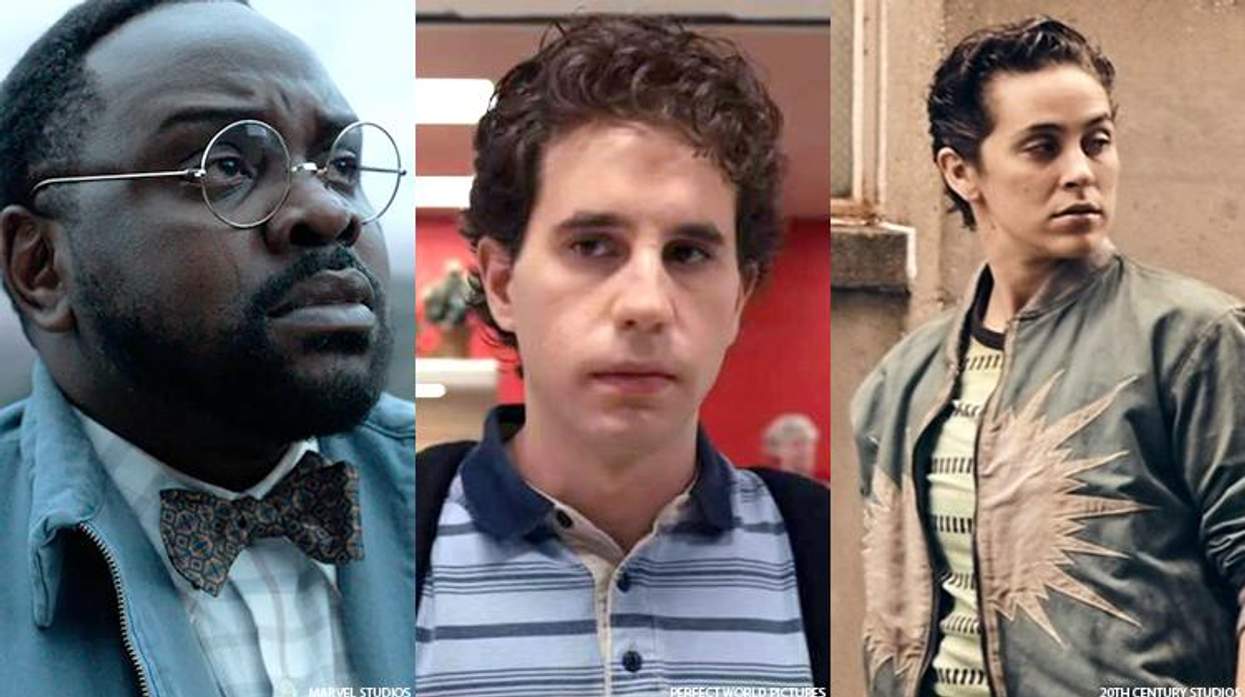Major movie studios are dropping the ball on LGBTQ+ representation in films, according to LGBTQ+ group GLAAD.
The organization's 10th annual Studio Responsibility Index saw the percentage of LGBTQ-inclusive films, including racial diversity and screen time, drop.
The study measures the proportion of LGBTQ+ characters in films released by seven of the highest-grossing film studios in the world. They are Lionsgate, Paramount Pictures, Sony Pictures, Universal Pictures, The Walt Disney Studios, and Warner Bros.
GLAAD found that 16 of the 77 films theatrically released by major studios in 2021 contained LGBTQ+ characters. At 20.8 percent, this represents a drop of nearly 2 percentage points from the previous year when 10 out of 44, or 22.7 percent of films, included LGBTQ+ characters. So while there was an increase of six in the number of films with LGBTQ+ characters, the proportion of representation shrank.
Films like Our Ladies, Licorice Pizza, West Side Story, In the Heights, and Dear Evan Hanson contributed to those numbers.
Of the 28 LGBTQ+ characters in movies in 2021, 19 were men, and nine were women.
The report indicates no representation of transgender women or nonbinary characters represented; however, in Disney's West Side Story, GLAAD notes one trans character's representation: Anybodys, a trans man.
The report notes that the racial diversity among the 28 LGBTQ+ characters accounted for 39 percent or 11 characters of color.
The study is critical of studios regarding the representation of lesbians and bisexual people and the overall screen time of LGBTQ+ characters in films.
"Of the 16 LGBTQ-inclusive films released in 2021, 11 (69 percent) included gay male characters, up from 60 percent last year, four (25 percent) included lesbian characters, a strong decrease from last year's 50 percent, two (13 percent) included a bisexual character, up from 10 percent, and one (six percent) included a transgender character, up from last year's zero," the report states.
Additionally, only seven of the 28 LGBTQ characters had ten or more minutes of screen time. Seventeen had fewer than five minutes, with six showing up for less than one minute in the movies scored.
Notably, zero characters represented were disabled or living with HIV, according to the report.
Concerning the studio distributor and its parent company's support or harm to the LGBTQ community, GLAAD evaluated four critical areas in this year's report. Those include an accounting of donations made by a studio or the studio's parent company to anti-LGBTQ+ elected officials, public advocacy efforts around pro-LGBTQ+ or anti-LGBTQ+ legislation, LGBTQ-inclusive public communications by a studio or the studio's parent company and actions taken by a studio or the studio's parent company to support LGBTQ-inclusive titles domestically and internationally.
"At a time when the LGBTQ community is under unprecedented attacks, it is more important than ever to hold studios and corporations accountable as businesses remain the most trusted entity in the U.S.," said GLAAD CEO & President Sarah Kate Ellis in a press release with the report.
"This new addition to our methodology tracking corporate actions makes it clear that entertainment and media companies need to expand beyond onscreen representation," Ellis said. "LGBTQ people deserve to have positive representation reflected in cinemas around the world, and to know that the people and companies who make and market LGBTQ-inclusive films unequivocally stand up for LGBTQ folks."





































































Charlie Kirk DID say stoning gay people was the 'perfect law' — and these other heinous quotes